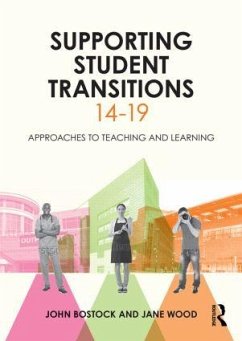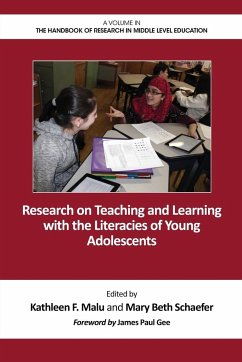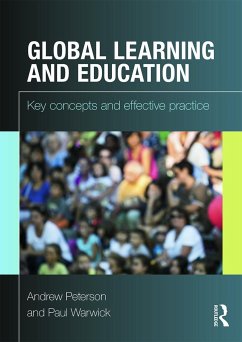Nicht lieferbar

Adolescents in the Internet Age
Teaching and Learning from Them
Versandkostenfrei!
Nicht lieferbar
A volume in Lifespan Learning Series Editors Paris S. Strom, Auburn University and Robert D. Strom, Arizona State University Teaching adolescents and learning from them is the paradigm elaborated throughout this second edition of Adolescents in the Internet Age. The premise is based upon four assumptions: (1) Adolescents have unique experiences that qualify them as the most credible source on what growing up is like in the current environment; (2) Adolescents are more competent than many adults with tools of technology that will be needed for learning in the future; (3) Adolescents and adults ...
A volume in Lifespan Learning Series Editors Paris S. Strom, Auburn University and Robert D. Strom, Arizona State University Teaching adolescents and learning from them is the paradigm elaborated throughout this second edition of Adolescents in the Internet Age. The premise is based upon four assumptions: (1) Adolescents have unique experiences that qualify them as the most credible source on what growing up is like in the current environment; (2) Adolescents are more competent than many adults with tools of technology that will be needed for learning in the future; (3) Adolescents and adults can support mutual development by adopting the concept of reciprocal learning; and (4) The common quest of adolescents to gain adult identity could be attained before employment. Expectations are the theme for every chapter. The reason expectations are so important is because they influence goals, determine priorities, and are used to evaluate progress and achievements of individuals and institutions. When teacher expectations correspond with the abilities and interests of students, achievement and satisfaction are common outcomes. In contrast, if teachers expect too little, student potential can be undermined. There is also concern if expectations that students have for themselves surpass their abilities. This occurs if teachers do not inform students about their deficits. Multitasking, doing too many things at the same time, detracts from productivity. Sharing accountability depends upon complimentary and attainable expectations that can be met by students, teachers, and parents. To support appropriate expectations, tthis book for secondary teachers and high school students seeking a broader understanding of their own generation is organized in four parts about aspects of learning and development. (1) Identity expectations introduce traditional perspectives on adolescence, changes related to sources of learning, evolving emphasis of schools, and ways to support motivation, goal setting, and formation of identity. (2) Cognitive expectations examine mental abilities, academic standards, emergence of the Internet as a learning tool, development of media literacy, creative problem solving, and encouragement of higher order thinking skills. (3) Social expectations explore the need for giving greater attention to social development, importance of teamwork skills, involvement with social networking, adoption of civil behavior, school safety, and values as a basis for ethical behavior and character. (4) Health expectations center on decisions that influence physical health, well-being, and lifestyle choice. Consideration is given to stress management, emotional intelligence, and risk assessment strategies for individual teenagers and the schools that they attend.















